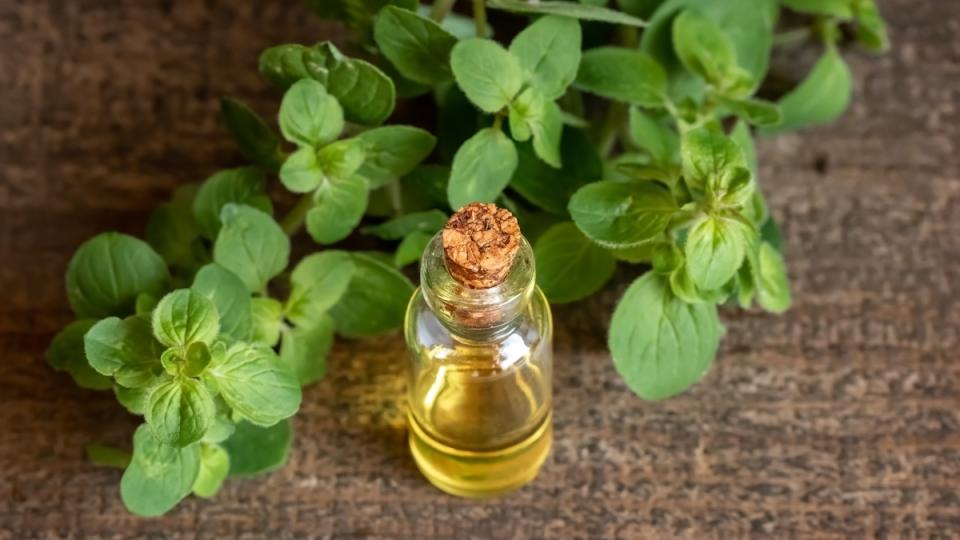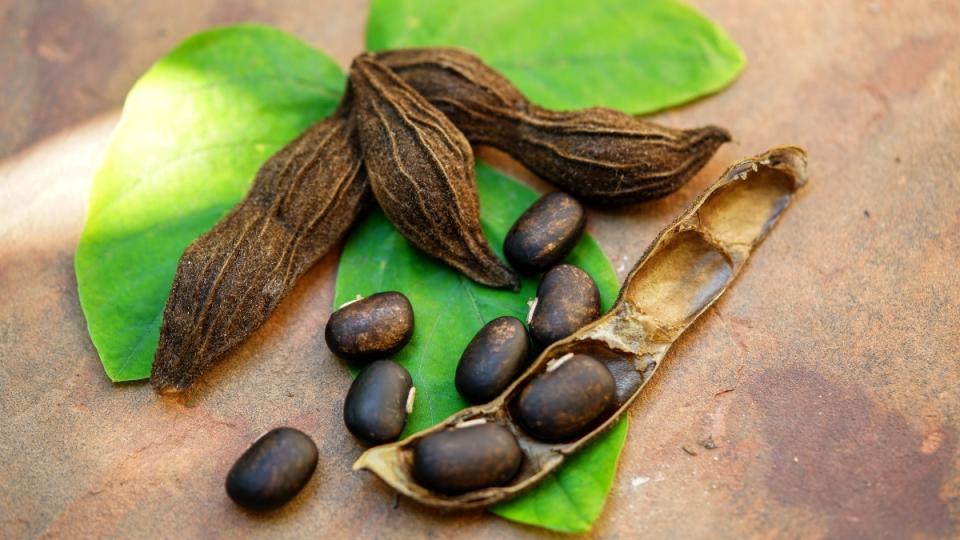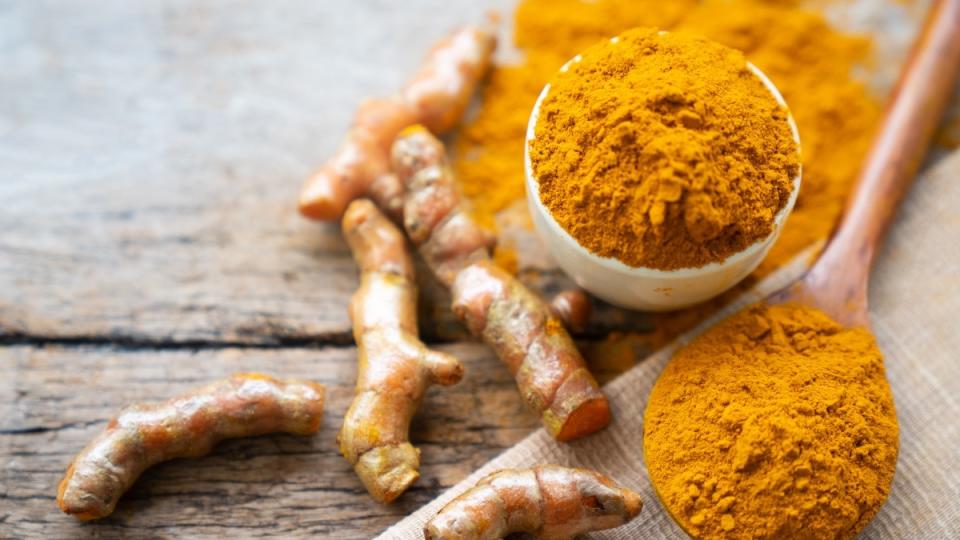Blue, Foggy and Fatigued? Your Dopamine Levels May Need a Boost, Doctors Say
Your brain chemicals play a role in everything you do. They enable communication between the different parts of your brain, send information to the rest of your body and help manage your mood. One of the most well-known brain chemicals: Dopamine, also known as the "happy hormone". But if you've been feeling blue, tired or mentally foggy lately, your body's production of this key hormone likely needs a boost. The good news: Dopamine supplements can lift your levels (and your mood!) naturally.
What is dopamine?
Dopamine plays a vital role in reward, motivation and pleasure. It also affects various bodily functions such as movement, the sleep-wake cycle and your heart rate. And when your brain produces it in proper amounts, you feel motivated, upbeat and energized. In fact, research in the European Neuropsychopharmacology suggests that as dopamine levels increase, energy soars by 150%. It's so vital, Anna Lembke, MD, Chief of the Stanford Addiction Medicine Dual Diagnosis Clinic at Stanford University and the author of Dopamine Nation: Finding Balance in the Age of Indulgence, says our brains associate the release of dopamine as being important for survival.
“When we’re first exposed to a rewarding stimulus, whether a substance we ingest or a behavior we engage in, dopamine firing in the brain’s reward pathway increases and we experience pleasure and/or analgesia [relief from suffering],” she explains. And you don't need to experience some over-the-top amazing event to increase dopamine production. Little everyday activities like eating a chocolate bar or winning a few bucks on a scratch-off lottery ticket are enough to cause dopamine levels to spike. They also trigger what’s known as the dopamine reward cycle.
Why dopamine levels decline
Dr. Lembke says the dopamine reward cycle was beneficial for our ancestors, especially when food and shelter were hard to come by, since it forced them to “work hard for even modest resources.” But these days, it can lead to problems.
That’s because repeated exposure to what Dr. Lembke calls “reinforcing substances and behaviors” causes our dopamine levels to spike. For instance, activities like shopping or scrolling social media release a burst of dopamine all at once. Over time, our brains adjust to this constant dopamine influx. This leaves us craving more and more. The result: We become addicted to instant gratification.
"We need to keep ‘using’ not to feel good or solve a problem but to prevent withdrawal from the last dose,” Dr. Lembke explains. That's why so many of us are attached to our cellphones or crave junk food. The feel-good chemical rush we get from things such as social media "likes" or sugar causes us to pursue pleasure constantly, ultimately exhausting the dopamine-producing neurotransmitters in our brain.
While this constant pursuit of pleasure is the biggest culprit behind declining dopamine levels, other health issues can play a role, too. That includes:
Attention deficit hyperactivity disorder (ADHD)
Schizophrenia
Depression
Parkinson’s disease
Restless leg syndrome (RLS)
Obesity

Symptoms of a dopamine deficiency
Your dopamine levels naturally fluctuate during the day. But if you regularly have a shortfall of this important brain chemical, you may experience symptoms such as:
Depression
Anxiety
Fatigue
Loss of motivation
Short-term memory loss
Difficulty thinking
Low sex drive
Problems managing routine tasks
You may also find that activities you used to enjoy no longer give you pleasure. While there isn’t a specific test to diagnose low dopamine levels, a physical exam and a discussion of your lifestyle can help your doctor determine if your symptoms are lifestyle-related or caused by an underlying medical condition.
Related: This Arctic Herb Shows Great Promise In Treating Tiredness and Depression
Who should avoid dopamine supplements?
“Dopamine supplements aren’t recommended for individuals without a diagnosed deficiency or a specific medical need,” says Karla Molinero, MD, MS, Medical Director for Newport Healthcare. “Additionally, people with pre-existing medical conditions, especially psychiatric disorders, should avoid dopamine supplements, as altering dopamine levels without professional guidance may have unintended consequences.”
The best dopamine supplements
While low dopamine can hamper your mood and energy, it's easier than you think to reverse a shortfall. “Those looking to support healthy dopamine levels should focus on lifestyle factors first,” Dr. Molinero says. “Regular exercise, a balanced diet and sufficient sleep can positively influence dopamine production.”
Aside from these basics, dopamine supplements can play a major role in keeping your levels in a healthy range. How do they work? Certain herbal compounds support the body's natural dopamine production. And adding one (or more) of these dopamine supplements to your daily routine can help erase blue moods, brain fog and more. Here, our expert's top picks:
1. Oil of oregano
Carvacrol, sold under names like oil of oregano and oregano oil, is an antioxidant found in plants such as oregano, thyme, pepperwort and wild bergamot. “It has been shown to increase dopamine levels in animal studies and prevent the breakdown of dopamine,” says Dr. Uma Naidoo, MD, a Harvard-trained nutritional psychiatrist, professional chef and the author of the bestselling This is Your Brain On Food and the upcoming Calm Your Mind with Food.
The result: A happier mood. One study in the journal Fundamental & Clinical Pharmacology suggests that carvacrol has an antidepressant effect. And another in the British Journal of Nutrition suggests carvacrol inhibits the breakdown of dopamine, which enhances mood. One to try: Source Naturals Oil of Oregano (Buy from Amazon, $20.80).

2. Vitamin D
Vitamin D helps keep your spirits up, but most people don’t get enough of this "sunshine vitamin." And that's especially true during winter's shorter, darker days. In fact, about 42% of American adults are vitamin D deficient. (Click through to learn how a vitamin D deficit can cause fatigue and blue moods — and how to reverse it.)
“If you’re thinking about dopamine supplementation, vitamin D and D3 are worth looking for,” says Seth Bolton, an accredited integrative therapist who specializes in cognitive behavioral therapy (CBT). (Vitamin D3 is typically more easily absorbed by the body.) “That’s because low vitamin D and D3 have been linked to decreased dopamine levels.”
Indeed, research in Neuroscience suggests supplementing with vitamin D3 increases dopamine levels. “If you’d like to take vitamin D for the mood-boosting effects, I recommend 2,000 IU daily,” says Carmelita Lombera, RDN, a registered dietitian and nutrition consultant for Consumer Health Digest. “One study found that supplementation with 2,000 IU of vitamin D for 12 weeks significantly increased dopamine serum levels.” One to try: Nature Made 2,000 IU D3 (Buy from Amazon, $17.45).
Also smart: Spending about 15 minutes outside soaking up the midday sun (without sunscreen) each day. The body naturally produces vitamin D when sunlight strikes skin, helping boost the mood-lifting benefit.
3. Probiotics
Probiotics are beneficial bacteria typically found in fermented foods such as yogurt, kefir and kimchi. While they're best known for keeping your gut happy, they also keep you more upbeat, too.
“Our gut acts like a ‘second brain’,” explains Lombera. “It produces neurotransmitters like dopamine and serotonin," at least 90% of which is made in the gut. By feeding these "good guy" bacteria in your gut, you help your body churn out more mood-lifting dopamine. One study suggests that supplementing with a probiotic daily significantly reduces anxiety and increases dopamine production. (Click through to learn how to make probiotic-rich yogurt at home to boost the feel-good benefits.)
“I would recommend a probiotic that includes some of these strains: Lactobacillus acidophilus, Lactobacillus casei, Bifidobacterium bifidum,and Lactobacillus fermentum,” Lombera says. “Designs for Health has a powdered probiotic that [contains some of these strains] and is acid-tolerant, allowing it to absorb through the gut wall. Just ? tsp. provides 20 billion live organisms and there is only one other ingredient: inulin, a prebiotic fiber with a mild sweet taste.” Try: Designs for Health Probiotic Synergy (Buy from Designs for Health, $55.49).
4. Velvet bean extract
Mucuna pruriens, also known as "magic velvet bean", is a plant native to China and East India that's been used in natural medicine for thousands of years. Now, research suggests it's a powerful way to improve your mood. That’s because the velvet bean is loaded with levodopa (or L-dopa), an amino acid the brain uses to make dopamine. (Click through for more velvet bean benefits.)
Indeed, researchers reporting in the Journal of Neurology, Neurosurgery & Psychiatry found velvet bean extract increased levodopa levels 110% higher than a prescription medication. What’s more, a study in Fertility & Sterility found supplementing with velvet bean extract increased folks’ dopamine levels by up to 72% within three months. Neuroscientist Daniel Amen, MD, author of Feel Better Fast and Make it Last advises supplementing with 200 mg of velvet bean extract daily. One to try: Advance Physician Formulas Mucuna Pruriens 200 mg (Buy at iHerb, $12.72).
Related: Why Doctors Recommend Women Eat More Sunflower Seeds — 4 Big Health Benefits

5. Curcumin
You may have heard that curcumin, the active ingredient in the spice turmeric, is a potent natural painkiller. But it's also a smart way to keep your mood and energy up. As Dr. Naidoo says, curcumin “may help the body release dopamine and confer some antidepressant effects." (Click through to learn how to turmeric speeds weight loss, too.)
How does it work? “In the brain, curcumin inhibits the activity of an enzyme called MAO [Monoamine oxidase]," Lombera explains. "This increases the levels of neurotransmitters including dopamine, norepinephrine and serotonin.” Proof it works: A study in Phytotherapy Research of adults with major depressive disorder (MDD) found those who took 1,000 mg of curcumin daily improved their mood and outlook as well as those taking fluoxetine, also known as Prozac within six weeks.
Lombera recommends taking a 1,000 mg dose. “In the study mentioned above, patients who took 1,000 mg of curcumin for six weeks saw a significant reduction in depression rates,” she says. “I would also look for one that includes black pepper because it increases the bioavailability of curcumin by up to 2,000%.” One to try: Nature's Bounty Turmeric 1,000 mg Plus Black Pepper Extract (Buy from Amazon, $21.53).

6. Folate
Your brain needs certain nutrients to make dopamine effectively, and Dr. Molinero says L-methylfolate, a form of the B vitamin folate, is one of the most crucial dopamine supplements. The reason: It’s a precursor for the production of dopamine and “has been supported by research for those with mood disorders," Dr. Molinero adds. One two-year study of adults with major depressive disorder found that those who took DEPLIN, a prescription medical food containing L-methylfolate, daily saw significant improvements in their depressive symptoms.
The only way to know if you’re low on folate is with a blood test. “Your doctor can measure your folate level and recommend if a supplement would be useful,” Dr. Molinero explains. “DEPLIN is often prescribed in a 7.5 mg or 15 mg dose and is best taken with food in the morning.”
If you're not yet ready to invest in a prescription, which can be pricy, consider an L-methylfolate supplement to boost your dopamine levels first. One to try: Opti-Folate L-methylfolate 15 mg (Buy from Amazon, $29.99).
For more ways to boost your mood:
Top Doctor: This Natural Extract May Restore Your Mood, Mental Focus and Motivation
Serotonin Boosting Foods Take Your Mood From Blah To Bliss — In 30 Minutes or Less!
The Secret to a Happier Mood + Better Sleep Is a Regulated Nervous System — 7 Easy Ways to Get One!
This content is not a substitute for professional medical advice or diagnosis. Always consult your physician before pursuing any treatment plan.
First For Women aims to feature only the best products and services. We update when possible, but deals expire and prices can change. If you buy something via one of our links, we may earn a commission. Questions? Reach us at [email protected]